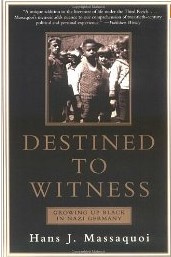His name was Werner Gladow, and his hero was Al Capone.
He reflected just about the worst of postwar Germany. As became clear later when he was on trial for murder, he was only interested in getting rich, and it didn’t matter how he did it — or who he had to hurt. It could be argued any sense of morality had been kicked out of him by the war and Germany’s defeat; he was 14 when the Russians took Berlin. But it was just as likely he was a sociopath to begin with. His short and violent criminal career ended with him being one of the first people to be executed in the new East Germany.
Born in 1931, he bounced from one school to another (11 by the age of 15), and landed after the war in the criminal elements around Alexanderplatz and Bahnhof Friedrichstrasse, where he did what many teenagers did — tried to make a quick profit in the black market. During one of his first attempts at swindling customers, he landed in prison for a few months, where he recruited some of the first members of what would become the Gladow Gang. Between 1947 and 1949 he committed 375 robberies in banks, markets, shops and jewelry stores.
He was a smart kid and knew how to use the political situation in the divided Berlin to his advantage. His gang would commit robberies in West Berlin, then flee back into East Berlin (it was easy to go back and forth in the years before the Berlin Wall was built). The western police had no authority in the east, and couldn’t pursue them. The eastern police wouldn’t pick up the chase since the crime had been committed in the west. The next time, Gladow committed his robbery in the east and fled to the west. After awhile he got cocky, leaving visiting cards at the scene of robberies and playing up to the press.
He also got more violent. His gang acquired firearms any way they could, including mugging police. They killed the driver of a chic car and stole it, only to get it stuck in the sand near Müggelsee. They tortured a businessman and his wife for the key to their safe.
Betrayed by one of his gang, the police caught him in a gun battle worthy of a Chicago gangster. (Here’s a 1950 Spiegel report on Gladow’s arrest). He was lightly wounded on the chin, and at the sight of his own blood, he fainted. He was convicted of murder, attempted murder and assorted other crimes. When he was hanged, he was only 19.



